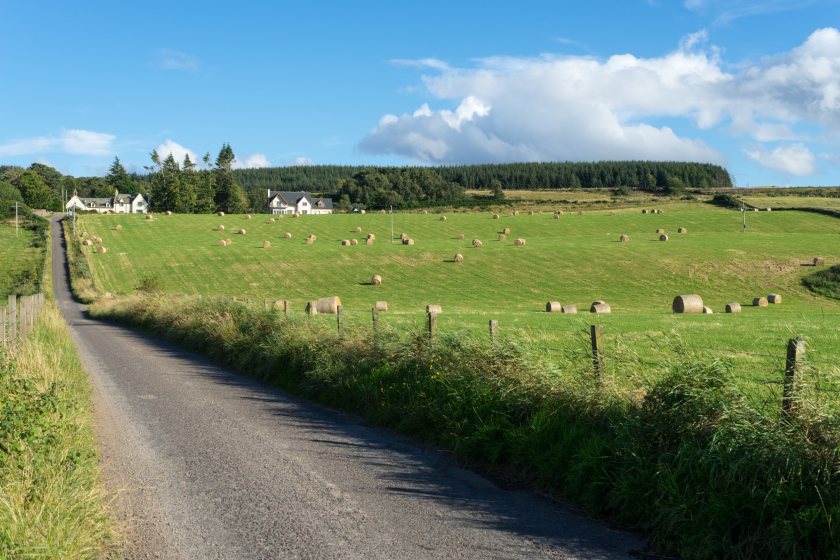
The Scottish government’s new Land Reform Bill could have 'significant implications' for agriculture in the country, industry leaders have warned.
The recently introduced bill aims to modify land ownership in Scotland by regulating some land sales.
It requires landowners with more than 3,000 hectares to produce land management plans.
The bill also provides new community empowerment provisions and modernises agricultural tenancies.
But NFU Scotland said the focus on land should be "around how it is used rather than physical ownership".
A new Land and Communities Commissioner will be created, who will advise on land sales where ownership is more than 1,000 hectares.
The Scottish government will then be able to make a direction breaking up the landholding into smaller parcels.
Whilst NFU Scotland acknowledged the desire to share the benefits of land ownership, it expressed concern on how the legislation would be delivered.
Gemma Cooper, head of policy at the union, said she had “significant concern” for the bill's impact on rural Scotland’s profitability and prosperity.
"The messaging from Scottish government has been that responsible landowners have nothing to fear from land reform, but these proposals seem counter intuitive.
“We believe that proposals around land market regulation have the potential to severely compromise farming. Economies of scale have meant that farms have had to get bigger to survive."
She said the bill suggested that "big is bad". "It does not consider the reasons why many family farms must operate at scale to survive or recognise the benefits that scale can deliver in the current climate and nature emergency.
"We must ensure that farmers and crofters have confidence to deliver on food, climate and biodiversity as well as delivering for rural communities.
Concerns have also been raised that the bill gives the Scottish Land Commission more powers by providing another new Commissioner who will advise ministers on land market regulation.
"This sends entirely the wrong message to landowners because it moves the Commission from an advisory to a regulatory role," Ms Cooper said.
Scottish Land & Estates (SLE), a group representing rural businesses in Scotland, warned the bill could "fail rural Scotland for generations".
Sarah-Jane Laing, chief executive of SLE said: “The Scottish government is using outdated ideology to punish those rural businesses making a huge contribution to Scotland.
“Rather than taking a common-sense approach to reflect the challenges that people living and working in rural Scotland face, Scottish Ministers are pursuing a destructive and disproportionate agenda against land-based businesses.
"Some of the measures signal a huge U-turn by Ministers from utilising land to pursue net zero towards a full-on attack on the property rights of large farms and estates.
“Ministers would not countenance taking the same approach to any other business sector."
When the legislation was announced earlier this year, then-Rural Affairs Secretary Mairi Gougeon said it would allow the benefits and opportunities of Scotland’s land to be more widely shared.
“We do not think it is right that ownership and control of much of Scotland’s land is still in the hands of relatively few people," she said.
“We want to be a nation where rights and responsibilities in relation to land and its natural capital are fully recognised and fulfilled.
“Too often, people and communities feel powerless when the land they live on is sold with no prior warning – this Bill will help to change that."
